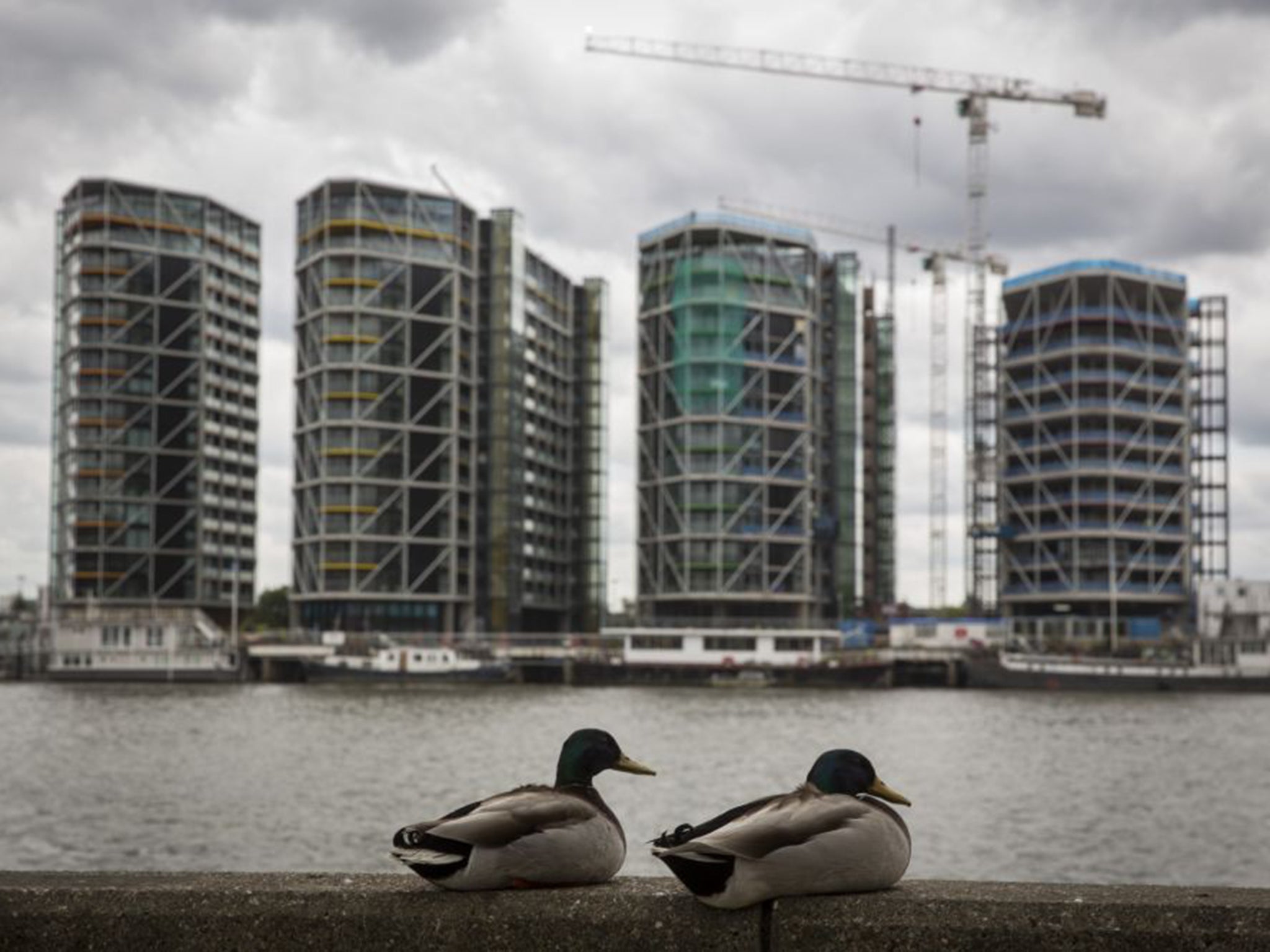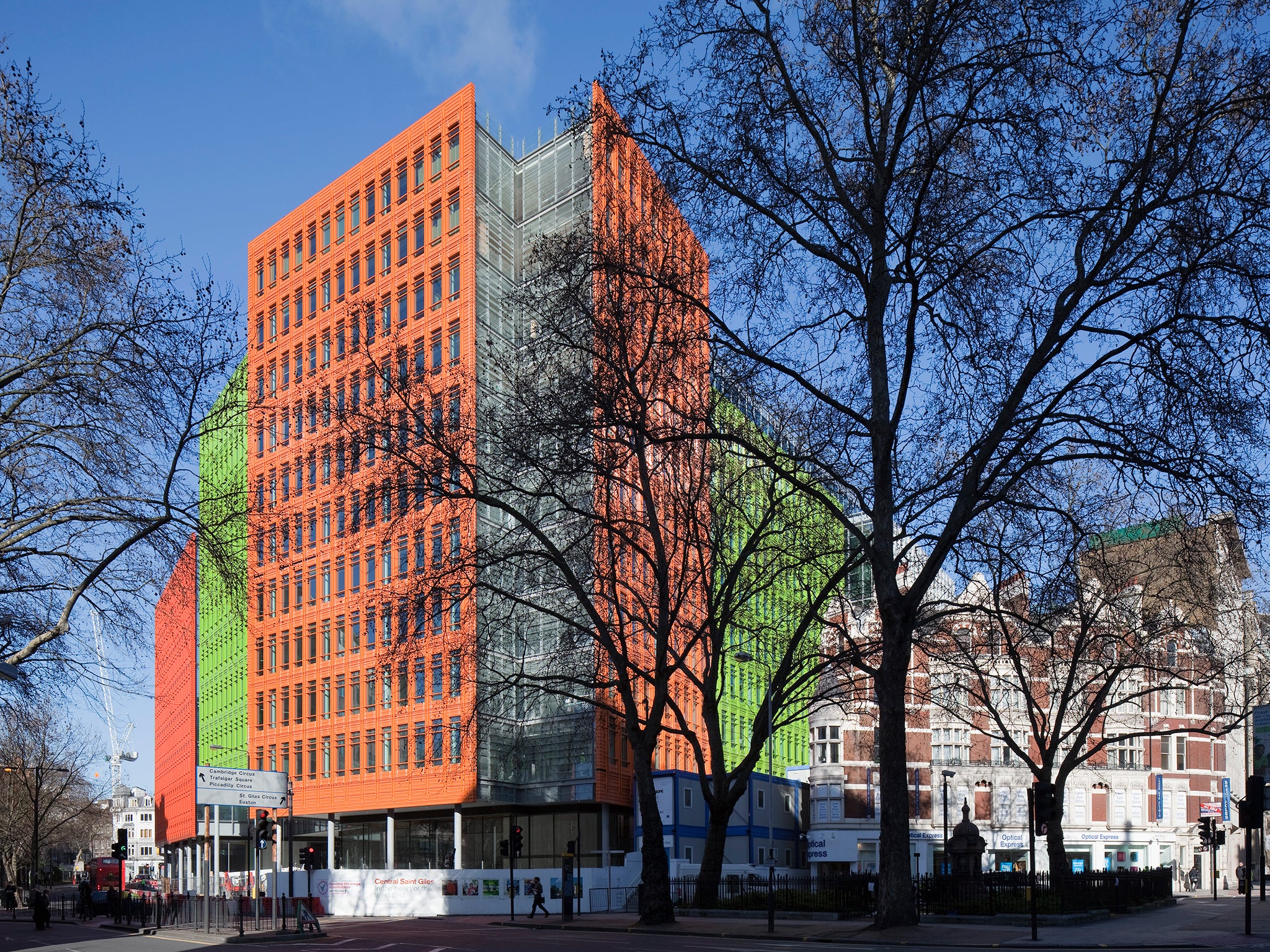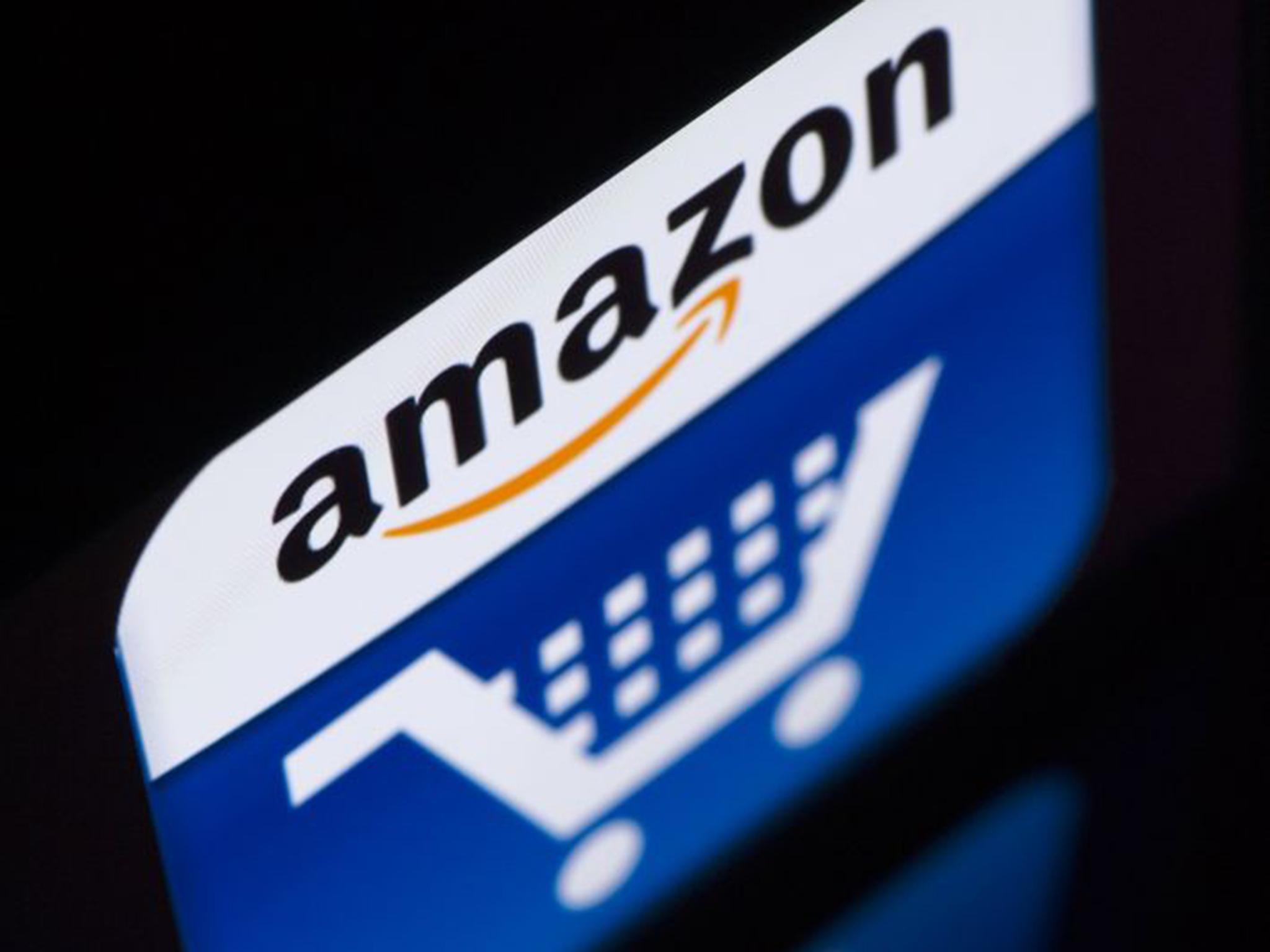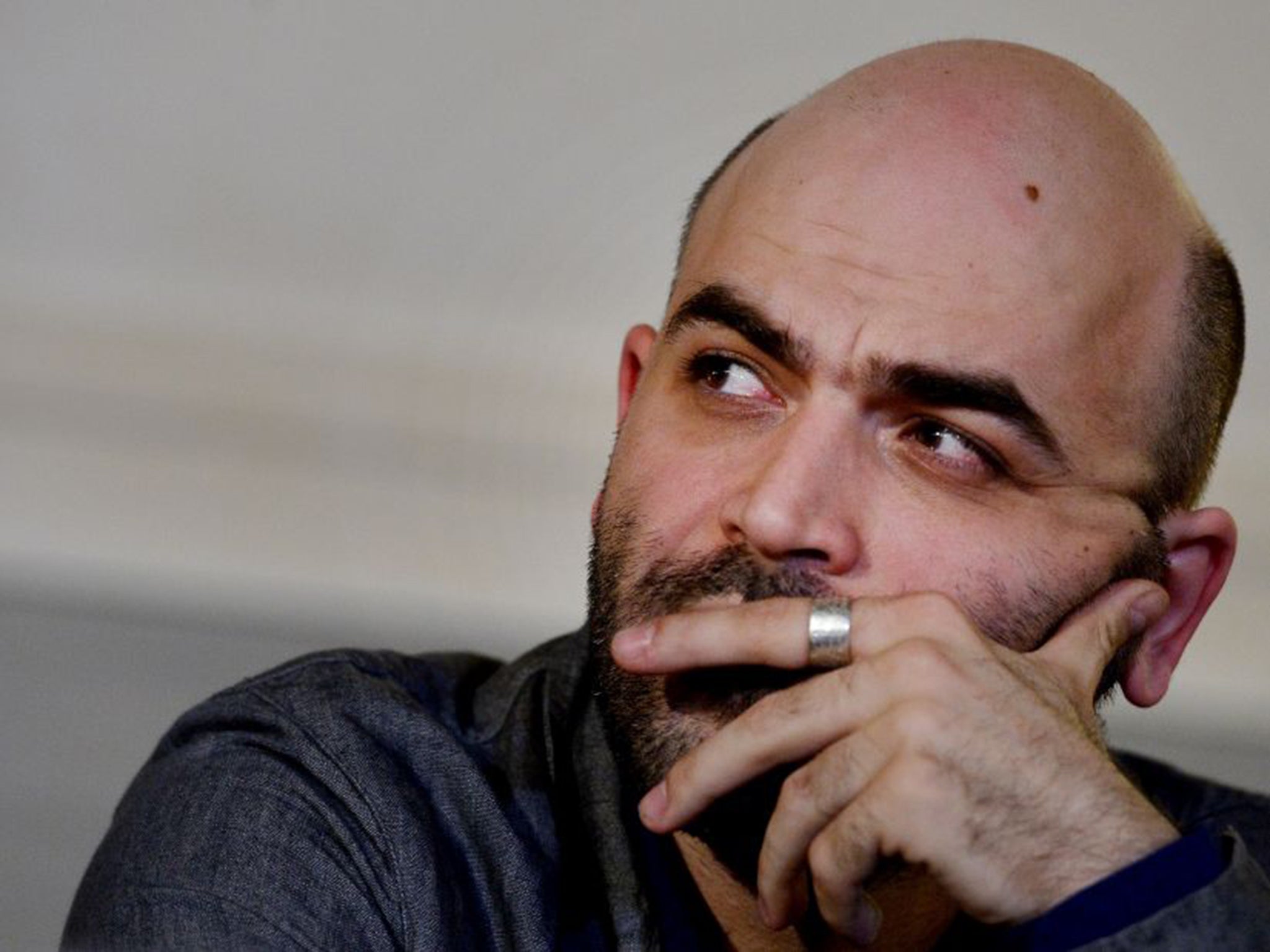How can you tell a multinational from the Mafia? You can’t
While Google cuts deals with HMRC, crime gangs treat London as a money laundry

Your support helps us to tell the story
From reproductive rights to climate change to Big Tech, The Independent is on the ground when the story is developing. Whether it's investigating the financials of Elon Musk's pro-Trump PAC or producing our latest documentary, 'The A Word', which shines a light on the American women fighting for reproductive rights, we know how important it is to parse out the facts from the messaging.
At such a critical moment in US history, we need reporters on the ground. Your donation allows us to keep sending journalists to speak to both sides of the story.
The Independent is trusted by Americans across the entire political spectrum. And unlike many other quality news outlets, we choose not to lock Americans out of our reporting and analysis with paywalls. We believe quality journalism should be available to everyone, paid for by those who can afford it.
Your support makes all the difference.Have you paid your tax bill? Of course you have, like a good citizen. 31 January is the deadline for many of us to do that, or face a fine. But as you walk through the streets of London it is hard to shake off the feeling that some people aren’t playing fair – either outside or inside the law. If that’s true, what can we do about it?
There’s a mansion in the back streets of Belgravia that has been shuttered up for years. The lights are off, nobody’s home. “Haven’t seen anybody in there, ever,” says a builder in a hard hat working on the house next door. He won’t say who for. The new owners want a subterranean swimming pool but they don’t want their names known.
The empty property next door is allegedly owned by a Russian who is being investigated for money laundering, but there is no way to know if that’s true. Criminals are using British laws – with their high regard for privacy – to hide behind anonymous companies and buy luxury properties in the capital, laundering the dirty money they’ve made from drug deals or stole from schools and hospitals back home.
“Today the City of London (together with Wall Street) is the world’s largest laundry for dirty money from the drug trade,” says Roberto Saviano, author of the highly acclaimed book Gomorrah, about Naples’s equivalent of the Mafia.

Figures released on 29 January show that property prices are booming, the average home in the capital is now worth £500,000 and the prices are being driven up – and Londoners driven out – by rich overseas investors buying up properties in the centre. They pay their taxes somewhere else (if at all).
So do huge online corporations such as Google, Amazon and Facebook that behave perfectly legally – nothing they do is criminal – but are still perceived to be paying absurdly low amounts here.
Google is planning a spectacular new headquarters with a swimming pool and running track on the roof, but for now it occupies five floors of the stunning Central Saint Giles, a £450m development just north of Tottenham Court Road, central London designed by the Italian architect Renzo Piano. Inside there is a meeting room stuffed with chintz called Granny’s Flat, and a huge, white circular sofa crowded with cushions and surrounded with books, called the Lala Library. Up on the roof there’s a secret garden called Hedge Your Bets.
And that’s what the company is doing by paying £130m in tax to cover a decade in which it reportedly made a profit of £6bn in Britain alone, says an international specialist who has been an expert witness for the authorities both here and in the United States.
“Companies like that don’t believe they should be paying tax at all,” she says, on condition her name is not used. “They say they invented the way the internet works, we should be glad to have them here. If anything, we should be paying them.”
Google would dispute that, and say it is paying exactly what the HMRC has asked for after a six-year audit. Peter Barron, the company’s European business affairs chief, has pointed out that it pays most of its tax in the US: $3.3bn (£2.3bn) in the last financial year. But the rest of us don’t get to sit down with a series of ministers and discuss what we’d like to pay.

The European Commission is to investigate whether George Osborne made a “sweetheart deal” to get his groovy friends from California to stay in the country.
“Why is there one rule for big, multinational companies and another for ordinary, small businesses and self-employed workers?” demands the Labour party leader Jeremy Corbyn. He should ask his predecessors Tony Blair and Gordon Brown, who were so smitten while in power they failed to get a penny out of Google.
Meanwhile, on the other side of the law, there is a completely separate category of people who use Britain to hide and clean money they have made in very dodgy ways.
Speaking exclusively from Italy, where he is guarded around the clock in case of reprisals, Roberto Saviano says: “Banks earn by moving and investing this huge, dirty, liquid money – cash is all they are always looking for, above all, in a time of crisis. They just need to shut their eyes on a few operations, that is to lower their supervising system, their anti-money-laundering policy, and that’s it.”
The Government has set out to fight this. Rules are being tightened in the City, and Britain will host an international summit against corruption in May. But lawyers and estate agents are also turning a blind eye as to where the cash comes from, as criminals use British property laws to buy luxury property anonymously.
“The National Crime Agency warned that criminal money was a threat to the UK’s economy, but the British government and the British people don’t feel like this is an emergency, like this is their problem, because criminal money is much less visible than corpses on the streets or bombs or shoot-outs but it’s still mafia,” says Saviano.
“In Mexico or southern Italy you see the dead, the blood and the drug seizures, and you can’t pretend it’s nothing. But criminal money is difficult to trace, it is silent and this is why it can be very dangerous.”
It’s not just London. “Aberdeen is a Camorra stronghold in the restaurant business, wholesale food and real estate,” he says, referring to the mafia in Naples. “Cosa Nostra [from Sicily] controls gambling in London; the ’Ndrangheta [from Calabria] has its hands on the real estate in London. The current housing bubble in London is fuelled by criminal money from mafia organisations: properties in the centre of London are being bought with laundered cash.”
And it’s certainly not only the Italians. Ninety per cent of luxury properties built in the capital in 2013 were bought by overseas investors, according to a report by Savills estate agents. Russians and eastern Europeans were the most keen, with Middle Eastern, north African and Chinese buyers close behind.
Being foreign does not equate with being a crook, of course, but criminals are certainly hiding among the legitimate buyers. In the same year, the Financial Services Authority estimated that up to £57bn of dirty money was laundered through the purchase of property here.
For example, a former Wickes DIY cashier called James Ibori became the governor of a state in Nigeria and stole money from the public purse there, then used it to buy a £2.2m house in Hampstead, north London and a holiday home in Dorset, as well as a fleet of armoured Range Rovers. He was caught and jailed for a £50m fraud. But others are taking advantage of a system that guarantees anonymity to the directors of companies registered in UK overseas territories or crown dependencies such as the British Virgin Islands.
If you’re a drugs baron or a dodgy politician who has stolen money from schools and hospitals back home, you get a smart lawyer to spirit it away to an anonymous company, then another to cover your tracks, before buying a gorgeous mansion. You don’t have to live there. You can rent it out to another of your anonymous companies and clean more money.

There are 36,000 properties in central London owned by companies registered in British offshore havens, according to the campaign group Transparency International.
“The problem is we know absolutely nothing about who owns this property,” says Rachel Davies, its head of advocacy and research. Transparency International wants buyers to have to tell the Land Registry who they really are before they can complete a purchase.
David Cameron cares about this; he wants it too. “There is no place in Britain for dirty money,” he said last summer, and promised to consult on a new register that shows the true owners of every property.
“That was the right thing to say,” says Rachel Davies, “but we are still waiting for the consultation to be announced. We would like the Prime Minister to put his great rhetoric into action.”
Roberto Saviano agrees the time has come to act. “The UK has data, has results of investigations, has the warning from experts: now it has to move, to make something before the criminal money buys it all.”

So that’s how to tackle the criminals, but with our sense of unfairness still strong, what can we do about the companies that do nothing wrong in the eyes of the law or the tax man and yet still don’t seem to be paying their way?
Peter Barron of Google says the £130m it has now paid in Britain represents 20 per cent tax on “the value added by the economic activity of our staff here” over the past 10 years. HMRC agrees the bill is right. But that’s because the authorities have a problem, according to our expert witness who wants to remain anonymous.
Typically, an online giant in this country might have intellectual property rights registered somewhere like Singapore and complete all its electronic transactions somewhere like Ireland or Luxembourg. So what exactly is it to be taxed on here?
“What are we meant to go for?” asks the expert witness. “The fundamental problem has been that governments and civil servants are totally incapable of understanding intellectual property and intellectual assets. We need a panel of independent industry experts who are not conflicted and who are paid properly, who can do for Britain what they do for the IRS [Internal Revenue Service] in the States: come up with ideas about how these people can be made to pay tax, and pursue it effectively through the courts.”
But the Inland Revenue has no incentive to do that, she says, having worked alongside its officers. “Seventy per cent of the tax they collect is low-hanging fruit: money from individual tax-payers and small businesses. We have no say about it, there is nobody speaking up for us, they terrorise us. That’s their major source of income. Why would they bother to chase the corporations?”
In those circumstances, getting £130m out of Google begins to sound like a win then, surely? “Yes, but there is a problem. The tax take is falling. The amount corporations are paying is getting less and less. That is not sustainable. We have an ageing population to pay for.”
And that’s why it really matters who pays what. If the biggest companies and property owners in this country pay tax elsewhere (and the criminals don’t pay at all) then we are left with a black hole in our national finances – and a deep sense of unfairness.
“Young people in particular are increasingly saying, ‘If they’re not paying, why should I?’” says the expert witness. “That is a disaster. If we go on like this, we will run out of ways to pay for how we live.”
Join our commenting forum
Join thought-provoking conversations, follow other Independent readers and see their replies
Comments